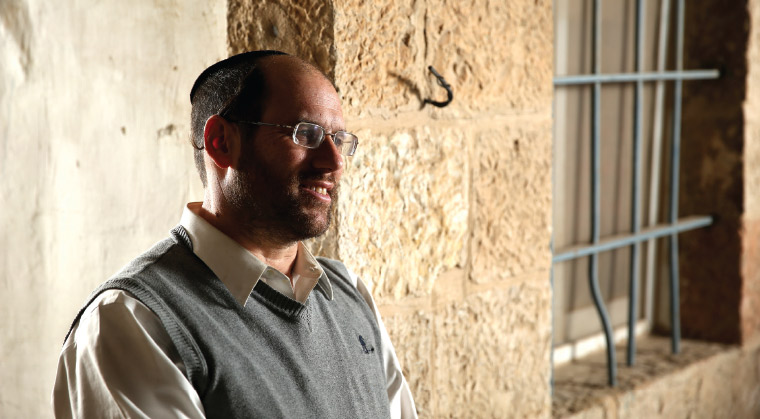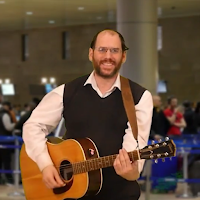W
hen Aaron Razel completed his army service, his search for something more took him to Tzfas. In Yeshivas Shalom Rav, in the alleys of the ancient holy city, he found himself transformed, turning to serious Torah learning that would change the trajectory of his life. Behind the yeshivah there was a cheder, and in between chavrusas, Aaron sometimes found himself gazing at the little boys playing, at the purity of their eyes and their innocent chatter. One of his early compositions reflected this experience — “Ein ha’olam mitkayem ela b’hevel pihem shel tinokot shel beit rabban” (loosely translated, “the world is sustained by the pure breath of children learning Torah”) — as he strummed and sang.
But the song lay in a drawer, unfinished, for years until recently, when Razel was compiling songs for his new album, Ad Emtza Makom (Until I Find a Place). The new album would be Torah-themed like his 2013 album Kavati Et Moshavi, featuring the hit title track “Ani kavati et moshavi b’veit hamedrash” (“I’ve decided to settle myself in the beis medrash”). An appeal on social media for short video clips of children learning Torah brought an avalanche of heartwarming contributions to the “Hevel Pihem” music video. Like most of Razel’s work, the song is sophisticated but also light, easy listening, with some influence from the Israeli music that Razel was raised on. It also makes you feel like embracing all those sweet cheder boys who might just be holding up the world. (Originally featured in Mishpacha, Issue 711)



